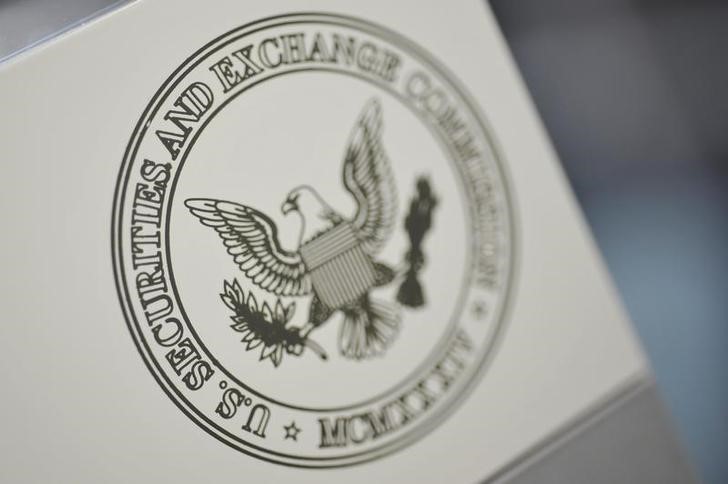By Lisa Lambert and Trevor Hunnicutt
(Reuters) - Mutual funds will have to show they have enough liquidity to cover a rush of redemptions from investors under rules that the top U.S. securities regulator is set to approve on Thursday.
The rules have stirred up the $18 trillion U.S. open-end fund market since they were first proposed a year ago. This week the Securities and Exchange Commission indicated it is responding to some concerns and altering the proposal ahead of Thursday's final vote.
The sole Republican commissioner, Michael Piwowar, told reporters on Wednesday it is considering changing a requirement for the funds to hold a minimum amount of assets that can be converted to cash in three days. Funds that fall below the threshold would have to stop acquiring other types of assets until they re-attain the minimum.
"There are active discussions as to how that is actually going to be structured," he said at the sidelines of a conference. "My concern is that we don't have a regulatory requirement that actually creates the problem we're trying to solve."
The changes should give funds some flexibility, he added.
The commission wants to ensure a fund can muster enough cash to pay out investors during a panic run. It is worried a major fund caught short would threaten market stability.
But Piwowar said having all funds hold the same amount of liquidity at the same time could worsen a deterioration in the market by forcing further selling.
"It'll be a robust, strong rule that is also more practical, but to be clear there's going to be a lot of wailing and gnashing of teeth on implementation," said one person familiar with the matter.
The rule is the latest in a series of efforts by the SEC to enhance its regulation of asset managers. Piwowar said another proposal that would restrict fund managers' use of derivatives is unlikely to be approved this year before a change in the presidential administration after Nov. 8 elections.
Managers of exchange-traded funds, which trade like stocks, have said the three-day minimums in the liquidity rule could directly contradict their investment strategies.
Dalia Blass, counsel at Ropes & Gray who worked in the SEC's investment management division, said the proposal would put ETFs in a no-win situation of choosing between complying with federal rules or with customers' orders.
Unlike mutual funds, ETFs often meet redemptions by handing over the stocks or other securities they hold instead of cash.
"Many in the industry don't think this rule is needed at all, but I think it's here to stay and we would rather have the SEC regulate it than the federal banking regulators," said Jay Baris, chair of Morrison & Foerster LLP's investment management practice in New York.
Meanwhile, the commission has changed its meeting agenda to separately consider another component of the proposal that would allow funds to use "swing pricing" in certain conditions. In swing pricing, trading costs are passed to shareholders through recalculating the fund's net asset value in order to protect existing shareholders from dilution.
"Changes to operational infrastructure are needed before swing pricing can be adopted effectively," wrote BlackRock Inc (NYSE:BLK) vice chairman Barbara Novick and a managing director, Benjamin Archibald, in a comment letter.

The main challenge is obtaining some data on investor flows with enough to time to determine if a swing is needed before publishing funds' net asset values, they wrote.